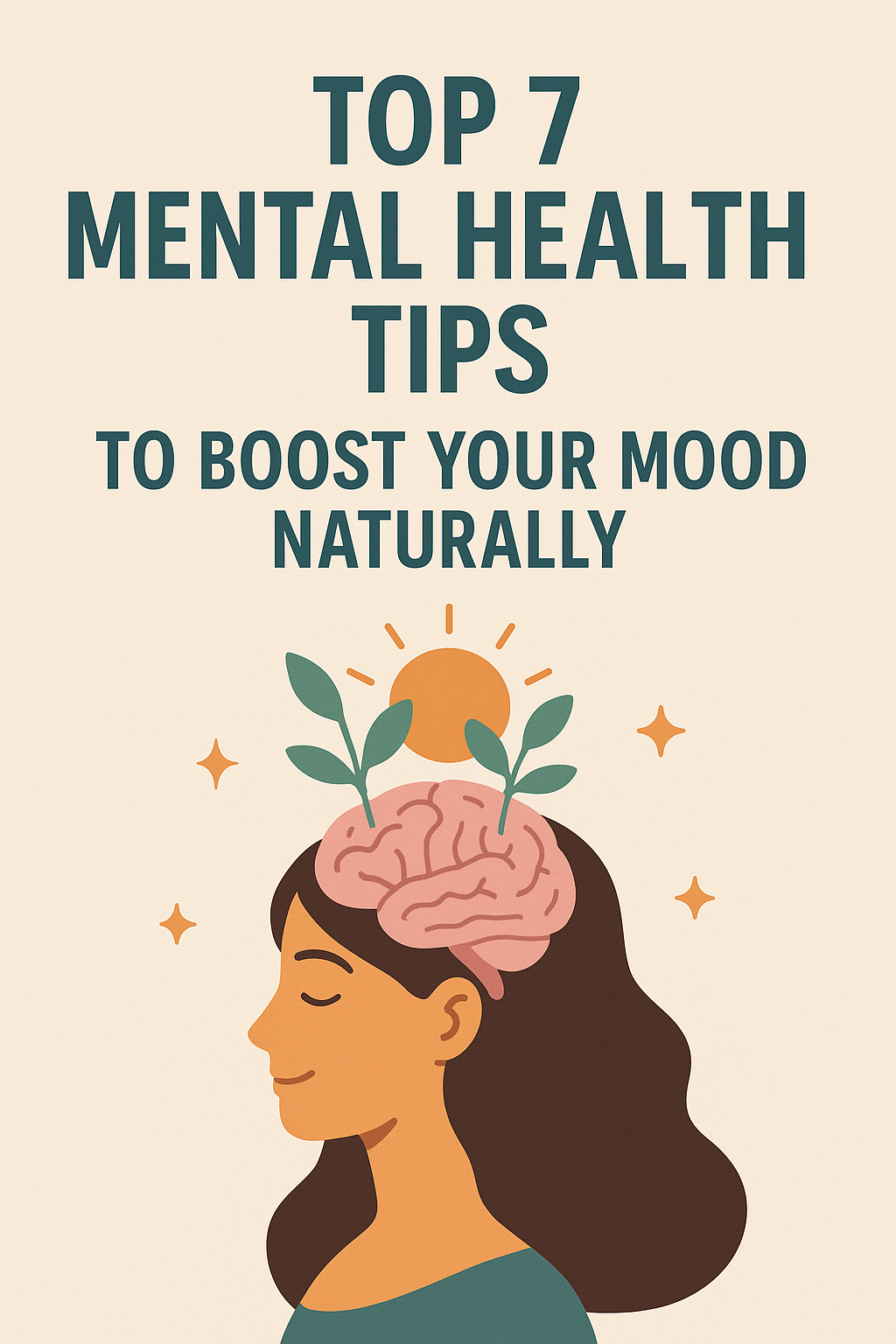
Top 7 Mental Health Tips to Boost Your Mood Naturally
Ever feel like your mood’s in a slump and nothing seems to shake it off? You're not alone—and trust me, you're not broken. Sometimes we just need a little nudge in the right direction. That’s why I’m spilling the beans on 7 powerful mental health tips to help you elevate your vibe, naturally and sustainably.
1. Get Moving with Fitness Routines That Make You Smile
Why exercise is your mental health BFF
You’ve heard it a million times, and here it is again because it *works*: moving your body is a cheat code for happiness. Consistent fitness routines release endorphins—those feel-good chemicals that are like nature’s anti-depressants.
Affordable fitness routines for busy professionals
Don't have time? No gym? No worries. Invest in some affordable fitness equipment like resistance bands or a jump rope. Even 20 minutes of home workouts a few times a week can help reset your brain and recharge your soul.
2. Nourish Your Brain with Healthy Eating Plans
The food-mood connection
What you put on your plate can change how you feel in your head. Foods rich in omega-3s, fiber, and antioxidants are the real MVPs when it comes to mood regulation. Think leafy greens, berries, fatty fish, and whole grains. They're like therapy, but crunchy.
Top diet trends for weight loss (that also help your brain)
Looking for a glow-up? Try these top diet trends for weight loss that double as brain fuel: intermittent fasting, the Mediterranean diet, and plant-forward eating. All tasty, no gimmicks.
3. Sleep: The Unsung Hero of Mental Health
The role of sleep in mental health
Sleep is not a luxury—it's a non-negotiable. Poor sleep messes with your mood, memory, and even your immune system. To put it simply: good sleep is like a software update for your brain.
The connection between sleep and productivity
Less sleep = less you. Skimping on rest might help you meet deadlines, but it’s killing your spark. A solid 7–9 hours every night can boost your focus, improve your mood, and make those wild ideas flow like magic.
4. Mindfulness: A Superpower Hiding in Plain Sight
Best mindfulness practices for reducing stress
If your mind’s racing faster than a squirrel on espresso, mindfulness can slow things down. Try simple meditation practices for just 5–10 minutes a day. Focus on your breath. Feel your feet on the ground. Be here, now. That’s it.
The beginner’s guide to yoga and breathwork
Beginner's guide to yoga alert: You don't have to twist into a pretzel to feel the magic. Gentle poses combined with deep breathing can help you release emotional tension and reconnect with your body. It’s like a mini-vacation without the airfare.
5. Build a Self-Care Toolbox
Self-care strategies that actually work
Forget bubble baths and face masks (unless that’s your jam). Real self-care strategies include setting boundaries, journaling, saying no without guilt, and taking time to do what lights you up.
How to create a personalized fitness plan
Want to go next level? Learn how to create a personalized fitness plan that suits your energy, goals, and lifestyle. This isn't one-size-fits-all—it's tailor-made joy through movement.
6. Connect with Your People
Why community is crucial for mental health
Humans are wired for connection. When we feel isolated, our mental health takes a nosedive. Call a friend. Join a class. Heck, start a book club. Little interactions can build big joy.
Affordable ways to stay social
Socializing doesn’t need to break the bank. Volunteer. Go for group hikes. Join a virtual community aligned with your interests. It’s all about shared energy and laughter—that stuff is contagious in the best way.
7. Stay in the Know with Wellness Trends 2025
What’s hot (and helpful) in mental wellness right now
The future of wellness is bright—and oh-so-innovative. Some top wellness trends 2025 include mental fitness apps, personalized nutrition, sound healing, and AI-powered therapy tools. Stay curious, and find what works for *you*.
Why tech can be your mental health ally
From mood-tracking apps to guided meditations and therapy chatbots, tech is no longer the enemy. It’s the sidekick helping you level up your mental health game, one notification at a time.
Conclusion: Your Mental Health Deserves the Front Seat
Here’s the truth: boosting your mood doesn’t require a total life overhaul. It just takes a few intentional tweaks, a sprinkle of consistency, and a whole lotta self-love. Start small. Be kind to yourself. Your mind will thank you—and your future self definitely will too.
FAQs
1. Can I improve my mental health without medication?
Absolutely. While medication can help many people, natural methods like exercise, healthy eating, sleep, and mindfulness can significantly boost your mental well-being.
2. How long before I notice a change in my mood?
It varies, but most people feel better within a few weeks of adopting healthier habits. Stick with it—the payoff is worth it.
3. What’s the best fitness routine for beginners?
Start simple: walking, stretching, or beginner yoga. Gradually add strength training or cardio. The key is consistency, not intensity.
4. Are there affordable ways to practice self-care?
Definitely! Journaling, free YouTube workouts, meditation apps, nature walks, and DIY spa days all count—and they won’t drain your wallet.
5. What if I try all this and still feel low?
If you’ve tried multiple strategies and still feel down, don’t hesitate to talk to a mental health professional. There’s no shame in seeking help—your mind matters.